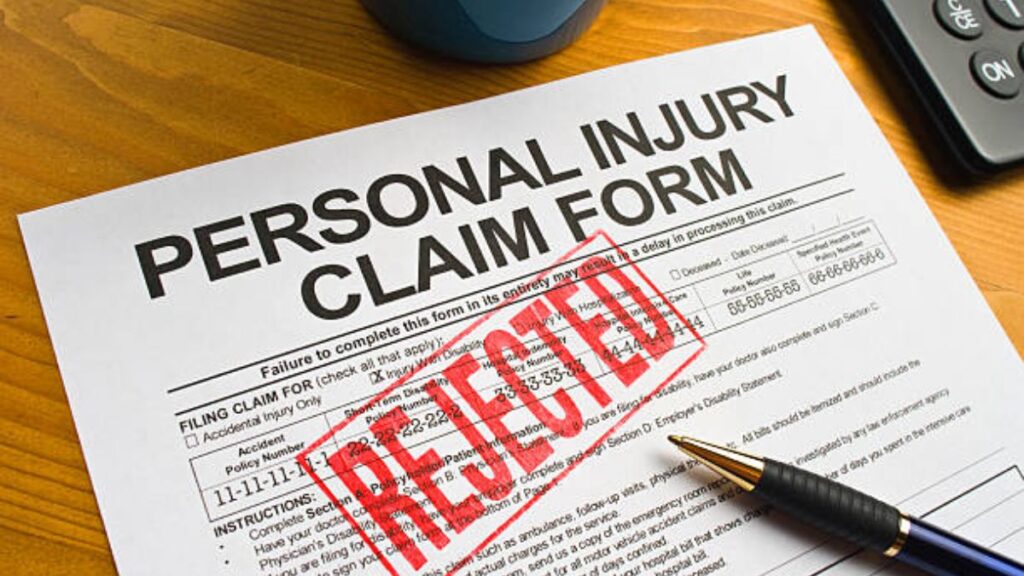Filing a personal injury claims is often a vital step toward receiving compensation for your injuries. However, many claims get denied, leaving individuals frustrated and unsure of what went wrong.
There are several reasons why a personal injury claim might not be successful. Some are preventable, while others may be linked to mistakes or misunderstandings during the claims process. At Koch & Brim Injury Lawyers, we’ve seen firsthand how easily claims can get denied, and we want to help you understand the common pitfalls.
In this article, we’ll break down the key reasons why personal injury claims are often rejected, so you can be better prepared if you find yourself in this situation. You’ll learn about missing deadlines, lack of evidence, or insurance company tactics. Let’s dive into the details so you know what to avoid.
Common Reasons Your Personal Injury Claims Could Be Denied
1. Failure to Provide Adequate Evidence
One of the biggest reasons personal injury claims get denied is insufficient evidence. Insurance companies need solid proof to support your claim that the accident caused your injuries. Without clear documentation, your case becomes harder to prove.
Key Evidence Needed:
- Medical records and bills
- Photos of the scene or injuries
- Witness statements
- Police reports
Without these, it’s difficult to demonstrate that the injury occurred or that it directly resulted from the accident.
2. Missing the Statute of Limitations
Every state has a time limit, called the statute of limitations, within which you must file a personal injury claim. If you miss this deadline, your claim can be automatically denied, regardless of its merits.
These deadlines vary by state, but in many cases, you’ll need to file within two to three years from the date of the accident. This makes it essential to act quickly after an injury.
3. Contributory Negligence or Comparative Fault
If the insurance company determines that you were partially at fault for the accident, they may reduce your settlement or deny your claim entirely. This is known as contributory negligence or comparative fault. In some states, even a small amount of fault on your part can disqualify you from receiving compensation.
For example, if you were texting while driving and caused an accident, the insurer may argue that your actions contributed to the event. Make sure to fully understand the laws in your state and how they apply to your situation.
4. Pre-Existing Conditions
Insurance companies often deny claims if they believe your injury was pre-existing. If you had a similar injury before the accident or were dealing with a chronic condition, the insurer may argue that the accident didn’t cause the harm.
In such cases, it’s important to have medical records and expert testimony that can establish a clear connection between the accident and any new injuries. If you can prove that the accident aggravated an existing condition, you may still have a valid claim.
5. Lack of Medical Treatment or Delay in Treatment
Insurance companies look for medical records that show immediate and consistent treatment after an accident. If you delay seeking medical help or stop treatment prematurely, it can hurt your claim.
Insurance adjusters may argue that your injury wasn’t severe enough to warrant compensation if there’s a gap in your treatment. Always seek medical attention right after the accident, and follow your doctor’s treatment plan closely.
Recap of Key Reasons Your Personal Injury Claim Might Get Denied:
- Lack of sufficient evidence (e.g., medical records, photos, witness statements)
- Missing the statute of limitations (timely filing is crucial)
- Contributory negligence (if you’re partially at fault)
- Pre-existing conditions (make sure to link the accident to the injury)
- Delay in medical treatment (consistent treatment strengthens your case)
- Inconsistent statements (ensure your story remains the same)
- Undervaluing your claim (ensure the settlement covers all damages)
By understanding these common reasons, you’ll be in a stronger position to prevent your claim from being denied. Always consult with an experienced attorney to help guide you through the process and improve your chances of success.







